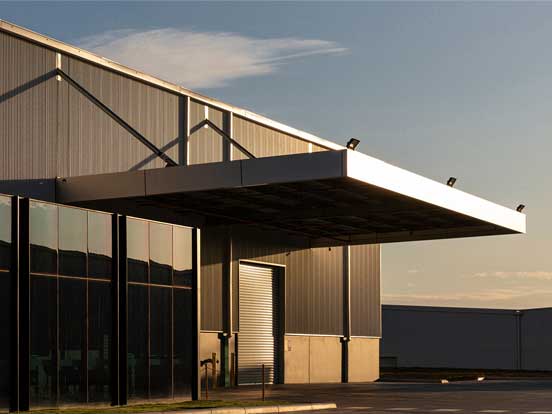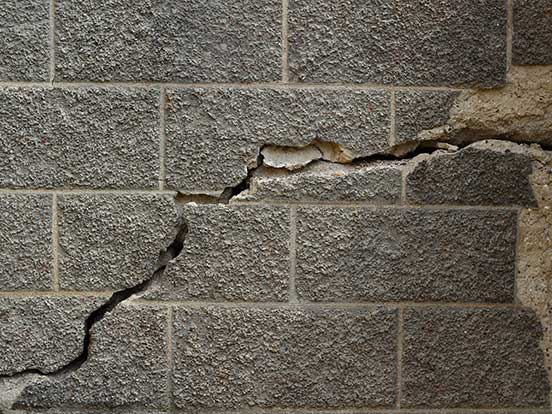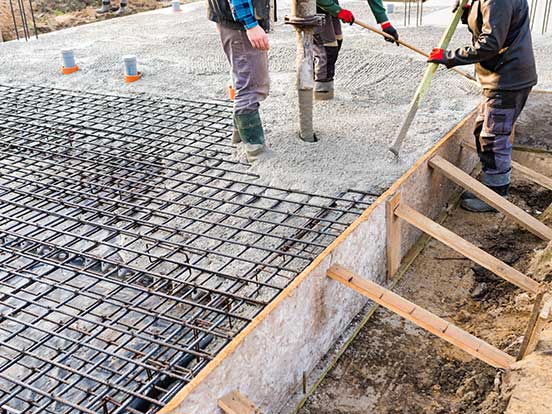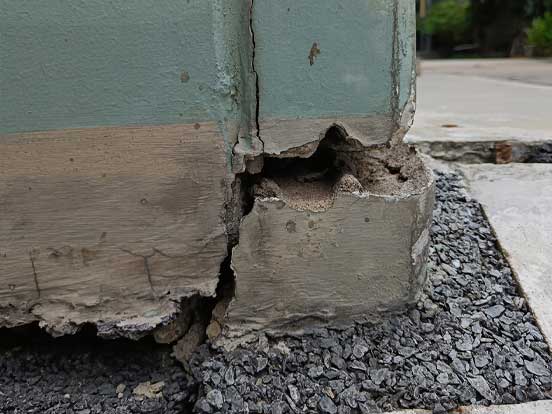Preventative Measures to Protect Your Commercial Property’s Foundation
Every building stands on a foundation, and the integrity of that foundation is crucial for the structure’s overall health. For commercial property owners, architects, and engineers, protecting the foundation is paramount. A strong foundation not only supports the weight of the building but also ensures its longevity and stability.
In this post, we will explore preventative measures you can take to protect your commercial property’s foundation. We’ll cover the importance of proper foundation support during construction, common causes of foundation damage, actionable steps for prevention, and signs of foundation issues. By the end of this guide, you’ll have a better understanding of how to safeguard your investment.

The Significance of Proper Foundation Support
The first step in protecting your commercial property’s foundation starts during the construction phase. Proper foundation support is critical to ensure the building’s stability and longevity. Without adequate support, the foundation can suffer from various issues, leading to costly repairs down the line.
Atlas Piers of Atlanta specializes in both new construction foundation support and repairing existing foundations. With over 30 years of experience, we offer reliable solutions to ensure your building stands strong for years to come.

Helical Anchors for Long-Lasting Support
Helical anchors are a popular choice for providing long-lasting support to foundations. These screw-like devices are driven deep into the ground, ensuring that the foundation remains stable even in shifting soil conditions. They are particularly useful in new construction projects and can significantly enhance the foundation’s durability.
Lifting and Repairing Commercial Foundations
Underpinning can be a lifesaver for commercial buildings with foundation issues. This technique lifts and stabilizes sinking foundations, preventing further damage. By redistributing the building’s weight through methods such as commercial resistance piers, underpinning effectively addresses problems like uneven floors, cracked walls, and misaligned doors.

Common Causes of Foundation Damage
Environmental Factors
Environmental factors play a significant role in foundation damage. Soil conditions, moisture levels, and temperature fluctuations can all impact the foundation’s stability. Expansive soils that swell when wet and shrink when dry can cause significant stress on the foundation, leading to cracks and shifts.
Construction Practices
Improper construction practices are another common cause of foundation damage. Inadequate soil preparation, poor drainage systems, and subpar materials can all contribute to foundation problems. Ensuring that the foundation is correctly installed from the beginning is crucial to prevent future issues.
The Need for Proper Installation
Proper foundation pouring is key to avoiding foundation damage. This includes using high-quality materials, following industry standards, and employing experienced professionals. A well-installed foundation is less likely to suffer from issues, providing peace of mind for property owners.
Preventive Measures
Waterproofing
Water is one of the biggest enemies of a foundation. Waterproofing measures, such as installing proper drainage systems and using waterproof coatings, can help protect your foundation from water damage. Regularly inspecting and maintaining these systems is essential to ensure their effectiveness.

Regular Inspections
Regular inspections are crucial in identifying potential foundation issues before they become major problems. Property owners should schedule routine inspections by professionals who can spot warning signs and recommend necessary repairs. Early detection can save significant time and money.
Moisture Control
Controlling moisture levels around the foundation is vital. This includes ensuring proper grading around the building, using gutters and downspouts to direct water away, and avoiding excessive landscaping near the foundation. Consistent moisture control helps prevent soil expansion and contraction, reducing stress on the foundation.
Signs of Commercial Foundation Damage
Cracks in Walls and Floors
Cracks in walls and floors are common signs of foundation damage. These cracks can appear as small hairline fractures or more extensive gaps. While minor cracks may be cosmetic, larger cracks can indicate serious structural issues that require immediate attention.

Uneven Floors
Uneven floors are another indicator of foundation problems. If you notice that certain areas of the floor are higher or lower than others, it could be a sign of foundation settlement. This issue can lead to tripping hazards and affect the building’s overall stability.
Misaligned Doors and Windows
Doors and windows that are difficult to open or close or that appear misaligned are often a result of foundation shifts. These shifts can cause frames to warp, making it challenging to maintain a secure and functional building.
Ensuring the Longevity and Stability of Your Commercial Property’s Foundation
Protecting your commercial property’s foundation is essential for ensuring its longevity, stability, and overall value. By understanding the importance of proper foundation support, recognizing common causes of damage, and implementing preventive measures, you can safeguard your investment.

Regular inspections, moisture control, and the use of high-quality materials during construction are all crucial steps in maintaining a healthy foundation. If you notice any signs of foundation damage, it’s important to seek professional advice promptly to address the issues before they worsen.
For expert foundation support and repair services, consider reaching out to Atlas Piers of Atlanta. With our extensive experience and commitment to quality, we can help you protect your commercial property and ensure its foundation remains strong for years to come.





